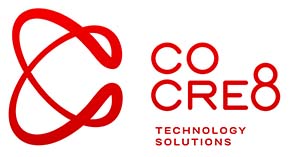As organisations around the world accelerate their digital transformation journeys, there’s a misplaced expectation that on-premise infrastructure will cease to be a priority.

Leon Leibach
But don’t stop investing in your storage resources just yet, says Leon Leibach, Head of Storage and Data Protection Portfolio at CoCre8 Technology Solutions, who explains that the resource most often affected in the move to digital is storage.
“Data is so important to everything to do with the business, so storage is arguably one of the most important discussions you can have when considering your digital future,” he says.
“Cloud adoption is on the increase especially from a backup and long-term data protection strategy perspective; and all of the leading backup and recovery applications provide cloud integration.
“To this end, many organisations are opting for a combination of on-premise and off-premise solutions reducing investment in their own storage infrastructure.”
Before making these decisions, Leibach explains that organisations need to examine how their data strategies map on to their storage technology requirements.
First of all, it’s important to have quick and easy access to business data, in order to support the modern digital business and its transformed practices and workplace cultures.
Versatile and expandable storage that offers a variety of service levels to cater for the varying needs of applications and of different classes of data.
Managing data is important, ensuring that it is always available where and when it is needed, with the appropriate automation.
It is also vital to protect data, to keep it safe from loss, theft or damage and – and, as digitalisation proceeds, we have far more data to protect and it must be possible to recover it quickly.
In the modern world, a hybrid storage strategy combining on-premise and cloud infrastructure can help to meet all of an organisation’s data, storage and protection requirements.
Leibach explains that storage solutions are adapting to meet the changing requirements of the digital world.
“New IT trends are imposing new challenges on storage systems,” he says. “The increasing use of business analytics and data warehousing, the hype around big data, server and desktop virtualisation, the enormous growth of unstructured data are just a few of the examples.
“These trends not only require massive storage capacities, but also – and more importantly – storage performance.”
This means that parameters such as IOPS (Input/Output Operations Per Second), latency and bandwidth are gaining in significance,” he says. “And many enterprises are purchasing additional storage systems, just to provide the required performance.
“This can result in storage capacity overprovisioning as well as higher operational and capital expenditure.”
Addressing these challenges are new storage infrastructure technologies and trends like all-flash storage systems, NVMe communication protocols and the latest Fibre Channel Generation 7 Switching platforms capable of operating at 64Gb/s speeds and 50 percent lower latencies.
“CoCre8 offers a complete storage ecosystem specifically through the Fujitsu, NetApp and Broadcom (Brocade) offerings,” says Leibach. “These offerings are complimented by backup and recovery solutions from Commvault, Veeam and Veritas.”
CoCre8 adds further value by working with partners and customers to understand the customers’ business requirements and translating them into solutions combining hardware, software and professional services such as implementation, maintenance and monitoring services.
“CoCre8 has a vast offering comprising the best of breed vendors in the industry and accommodate any customer requirements whether it is a SAN, NAS, Object storage requirement on- or off-premise, and more,” Leibach says.
Reliable and efficient data services with Fujitsu’s ETERNUS storage
Fujitsu offers customers powerful features for digital growth, efficiency and continuity with its all-flash and hybrid ETERNUS storage offerings that combine leading performance architecture with automated quality of service management.
Fujitsu’s all-flash and hybrid storage offerings are designed for real-world workloads. The ETERNUS Primary Storage portfolio comprising of traditional storage and software-defined storage solutions offers extreme scalability, superior performance and flexibility of storage technologies to handle a multitude of industry scenarios, workloads and applications.
The range offers customers affordable business continuity, too. The ETERNUS Primary Storage portfolio supports non-stop operations very efficiently. Featuring best-in-class continuity management, including native replication, mirroring and transparent failover, the portfolio offers maximum reliability with no business downtime.
Plus, they are designed for superior performance. The ETERNUS Primary Storage portfolio is based on an award-winning performance architecture that delivers the fastest response times even under extreme workloads. Thus customers get the best solution for every kind of business requirement – ultra-fast response times with all-flash performance or the optimal balance between cost, capacity and speed through the flexible combination of SSDs, SAS and nearline SAS within hybrid storage arrays.
Fujitsu ensures that storage operations are simplified. Intelligent management software makes it easy to get the best out of the ETERNUS Primary Storage portfolio. Reduce storage administration workloads dramatically while getting automated quality of service and the highest levels of storage efficiency at the same time.
Most importantly, Fujitsu and partner products are integrated to create complete solutions that meet customers’ real-world needs.
IT optimization for the digital world needs holistic concepts to ensure that long-term business goals are achieved. Fujitsu, as one of the world’s leading providers of end-to-end solutions, has more than 50 years of expertise in building sustainable infrastructure solutions. Based on innovative in-house developments and a powerful network of market-leading product partners, Fujitsu is the single point of contact for all your infrastructure needs.
The newly launched ETERNUS HB and AB ranges were designed with future storage trends in mind, providing cloud integration, NVMe block-based storage connectivity amongst other technologies.
And now the ETERNUS AB and HB storage line-ups are more cost-effective than ever, with Fujitsu offering a significant price reduction for the systems in global markets.
“This price recalibration is made possible by a fundamental change to the software licensing model,” Leibach explains. “ETERNUS AB and HB systems have changed from a capacity-based licensing to a system-based licensing model.
“This significantly lowers the price of the storage system – and the savings mount up with each SSD (solid state disk) that the customer adds, especially in the larger ETERNUS AB storage configurations.
All-flash storage
The ETERNUS AB series is an all-flash array that is suitable for performance-oriented environments that deliver outstanding IOPS performance and sub-millisecond latency.
The ETERNUS AB Series, which combines excellent performance with enterprise-class reliability, can improve processing speed and responsiveness in OLTP2, data warehouses, business intelligence (BI) and virtualisation to achieve business results quickly.
Hybrid storage
ETERNUS hybrid storage balances capacity, speed and cost and also offers data reduction technologies, granular scalability along with 99.9999 data availability.
The ETERNUS HB series is a hybrid storage that offers outstanding cost performance in a SAN environment with application-based data management.
Versatile and reliable, the ETERNUS HB series handles huge amounts of data for uses such as video surveillance, media and entertainment, Hadoop and analysis of the earth’s crust, in addition to applications such as databases and BI.
This storage system is suitable for high performance computing applications that require dedicated storage.
 For more information contact Leon Leibach
For more information contact Leon Leibach
leon.leibach@cocre8.africa
